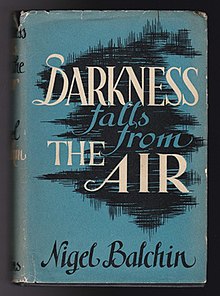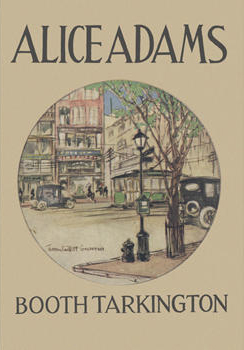
Alice Adams is a 1921 novel by Booth Tarkington that received the 1922 Pulitzer Prize for the Novel. It was adapted as a film in 1923 by Rowland V. Lee and more famously in 1935 by George Stevens. The narrative centers on the character of a young woman who aspires to climb the social ladder and win the affections of a wealthy young man named Arthur Russell. The story is set in a lower-middle-class household in an unnamed town in the Midwest shortly after World War I.
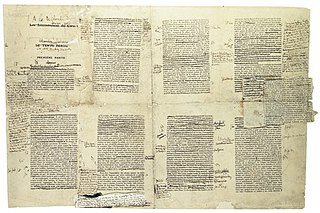
In Search of Lost Time, first translated into English as Remembrance of Things Past, and sometimes referred to in French as La Recherche, is a novel in seven volumes by French author Marcel Proust. This early 20th-century work is his most prominent, known both for its length and its theme of involuntary memory. The most famous example of this is the "episode of the madeleine", which occurs early in the first volume.

The History of Tom Jones, a Foundling, often known simply as Tom Jones, is a comic novel by English playwright and novelist Henry Fielding. It is a Bildungsroman and a picaresque novel. It was first published on 28 February 1749 in London and is among the earliest English works to be classified as a novel. It is the earliest novel mentioned by W. Somerset Maugham in his 1948 book Great Novelists and Their Novels among the ten best novels of the world.

Oblomov is the second novel by Russian writer Ivan Goncharov, first published in 1859. Ilya Ilyich Oblomov is the central character of the novel, portrayed as the ultimate incarnation of the superfluous man, a symbolic character in 19th-century Russian literature. Oblomov is a young, generous nobleman who seems incapable of making important decisions or undertaking any significant actions. Throughout the novel, he rarely leaves his room or bed. In the first 50 pages, he only manages to move from his bed to a chair.
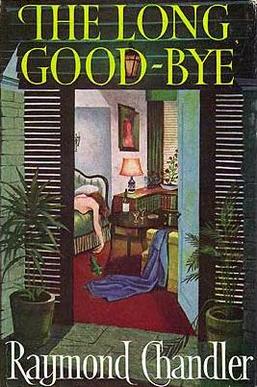
The Long Good-bye is a novel by Raymond Chandler, published in 1953, his sixth novel featuring the private investigator Philip Marlowe. Some critics consider it inferior to The Big Sleep or Farewell, My Lovely, but others rank it as the best of his work. Chandler, in a letter to a friend, called the novel "my best book".

Rob Roy (1817) is a historical novel by Walter Scott and is one of the Waverley novels. It is probably set in 1715, the year of the second Jacobite rising, and the social and economic background to that event are an important element in the novel, though it is not treated directly. The depiction of Rob Roy bears little relation to the historical figure: "there are two Rob Roys. One lived and breathed. The other is a good story, a lively tale set in the past. Both may be accepted as ‘valid', but they serve different needs and interests."

Nigel Marlin Balchin was an English psychologist and author, particularly known for his novels written during and immediately after World War II: Darkness Falls from the Air, The Small Back Room and Mine Own Executioner.
Michael Ayrton was a British painter, printmaker, sculptor, critic, broadcaster and novelist. His sculptures, illustrations, poems and stories often focused on the subjects of flight, myths, mirrors and mazes.
Penelope Jane Leach is a British psychologist who researches and writes extensively on parenting issues from a child development perspective.

The Fortunes of Nigel (1822) is one of the Waverley novels by Sir Walter Scott. Set in London in either 1623 or 1624, it centres on the Scottish community there after the Union of the Crowns and features James VI and I.
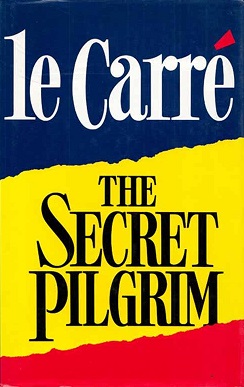
The Secret Pilgrim is a 1990 episodic novel by British writer John le Carré, set within the frame narrative of an informal dinner talk given at the spy-training school in Sarratt by George Smiley. As Smiley talks, the first-person narrator, whom readers know only as "Ned", recalls his own experiences in a long career in the service. The various episodes are triggered by comments from Smiley, which send Ned into tangential memories. The individual stories together create a portrait of Ned himself, moving from the start of his career at the beginning of the novel to his retirement in the final chapter. Several of the episodes are recognisable anecdotes or urban legends from the British intelligence community.
Philip Christian Darnton, also known as Baron von Schunck, was a British composer and writer.

Esperança is a Brazilian telenovela produced and aired by Rede Globo between 17 June 2002 and 14 February 2003.

Henrietta is an 18th-century novel by Scottish author Charlotte Lennox. The first edition was published in 1758, and the second edition, revised by Lennox was published in 1761.

The Mixture as Before is a collection of 10 short stories by the British writer W. Somerset Maugham, first published by William Heinemann in 1940.
Elisabeth Evelyn Ayrton was a British novelist and writer on cookery.

Mine Own Executioner is a 1960 Australian television play based on Nigel Balchin's 1945 novel of the same name. It was shot in Melbourne, at a time when Australian drama was rare.

Mine Own Executioner is a 1945 psychological thriller by the English novelist Nigel Balchin, and is the novel most often associated with the author. It was the most popular of Balchin's three war-time novels, following earlier successes he had had with Darkness Falls from the Air (1942) and The Small Back Room (1943), both of which had already acquired status as contemporary social documents.

In the Absence of Mrs. Petersen is a 1966 thriller novel by the British writer Nigel Balchin. After the death of his wife, a writer is persuaded by a woman who resembles his wife to pose as her husband and travel with her to her home country of Yugoslavia to retrieve some of her family's wealth.
